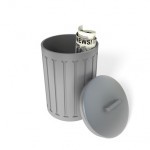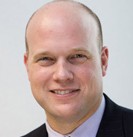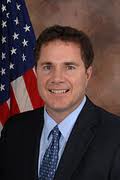
by | Jun 6, 2013
 Though the U.S. Senate race in Iowa is only in the pre-natal stage the Des Moines Register hasn’t wasted any time in displaying the partisan favoritism it has become infamous for—an impressive feat given the race is only a few months old and has only a combined three candidates declared.
Though the U.S. Senate race in Iowa is only in the pre-natal stage the Des Moines Register hasn’t wasted any time in displaying the partisan favoritism it has become infamous for—an impressive feat given the race is only a few months old and has only a combined three candidates declared.
The Evidence
In the last month they have run two stories solely based on Democratic talking points, a practice they have failed to reciprocate for the other side, and flat-out offered no coverage of a significant Republican event.
The first instance occurred almost a month ago when, days after candidate Matt Whitaker announced on The Simon Conway Show, the Register’s Jennifer Jacobs published verbatim a full press-release from the Democratic Senatorial Campaign Committee attacking Whitaker for comments he made on the program (http://blogs.desmoinesregister.com/dmr/index.php/2013/05/08/democrats-criticize-whitaker-for-pledging-to-vote-with-extremist-senators/article). In theory this practice is fine by me—provided of course that as a “reputable†statewide news organization they follow suit when the releases come from the other side of the aisle…I haven’t seen this yet.
What makes this so damaging is that there is no shortage of releases from the DSCC’s counterpart in Washington—the National Republican Senatorial Committee—but they seem unable to merit the same ink. I routinely get these releases from the NRSC and if they are well sourced and fact based I occasionally run them. An example would be the following from yesterday:
June 5, 2013
Lawyer Speak: Braley Misleads Iowa Students…Says Student Loan Rates Must be Kept from Doubling, But Votes Against Legislation to Extend Lower Rates for Iowa Students
Bruce Braley isn’t fooling anyone. The slick former head of the trial lawyers association and liberal loyalist to Nancy Pelosi – in true trial lawyer fashion – is trying to fool Iowa voters yet again, this time about the rising cost of student loans.
Less than two weeks ago, Bruce Braley voted AGAINST a bill on the House floor that would have extended a lower rate for Iowa students’ loans. Bruce Braley might be able to fool a jury, but he can’t fool Iowans.
SHOT: @TeamBraley – Help @BruceBraley’s effort to keep college affordable by adding your name here…. #DontDoubleMyRate #IAProblemSolver
CHASER: Bruce Braley Voted Against A Bill To Extend A Lower Rate For Student Loans. “Passage of the bill that would tie student loan interest rates to the 10-year Treasury note rate. Interest rates on all federal student loans (except Perkins loans) issued on or after July 1, 2013 would be set each year at the 10-year Treasury note plus 2.5 percent. Rates for graduate and parent PLUS loans would be set at the 10-year note plus 4.5 percent. Overall interest rates would be capped at 8.5 percent and 10.5 percent, respectively.†(H.R. 1911, CQ Vote #183: Passed 221-198: R 217-8; D 4-190, 5/23/13, Braley Voted Nay)
If Bruce Braley was actually worried about student loan rates, why did he oppose a bill to prevent the rates from doubling for Iowa students in less than a month? Why is he hiding from his vote?
“Preventing student loan rates from crushing Iowa students who are already struggling should be an issue of bipartisan agreement in Washington, but Bruce Braley would rather politicize the issue than actually help the struggling middle class. Braley’s misleading trial lawyer speak is just the latest example of his slick attempt to fool the jury – Iowa voters. Iowans are too smart for that.”said NRSC Press Secretary Brook Hougesen.
The second example of this behavior—also from the aforementioned Jennifer Jacobs—came just yesterday via a story on a “snarky†website just launched by the Iowa Democratic Party. The website makes a pretty juvenile attempt at poking fun of newly declared Republican candidate David Young. You can check it out here if you wish (http://welcometoia.com/), but I’m not going to give it any more play. The point here is the story published by the Register gave this Democratic effort everything it wanted—publicity and exposure.
What’s Not News?
A further slap in the face to Republican candidate David Young was the paper not even covering his official campaign announcement last Saturday at a restaurant in Van Meter—this is inconceivable. So to recap here—the Register can’t find the time or personnel to cover the announcement of a serious Republican candidate for the United States Senate…but they have the time and space to promote a Democrat website created to mock him. It’s just ridiculous.
This is merely a continuation of blatant bias—my all-time favorite was the Republican presidential endorsement debacle from 2008, which if you haven’t seen you need to click the link. The Register’s economic struggles of late have been well documented. Though I concede much of this is due to the struggle of integrating a web-based model, it’s hard not to assume a portion of the problem is their distinct and continuing partisan slant.
What kind of business model rejects and insults the sensibilities of what amounts to nearly half of their potential customer base? Answer: A struggling one that will continue to be further marginalized unless they change course and offer some balance.

by | May 17, 2013
 Yesterday the Republican-controlled House of Representatives voted once again to repeal Obamacare in full—a vote that passed 229-115 on party-lines besides two democrats who crossed over. Not the least bit surprising was that Rep. Bruce Braley once again voted in favor of Obamacare—but my how much different this must have felt than his first vote for it three years ago.
Yesterday the Republican-controlled House of Representatives voted once again to repeal Obamacare in full—a vote that passed 229-115 on party-lines besides two democrats who crossed over. Not the least bit surprising was that Rep. Bruce Braley once again voted in favor of Obamacare—but my how much different this must have felt than his first vote for it three years ago.
A Different Landscape
Besides the obvious fact that Braley is now a U.S. Senate candidate, a variety of things made yesterday’s vote a much bigger political gamble.
Consider this, on the day the Senate passed Obamacare through the Reconciliation process—March 25th 2010—the Real Clear Politics approval rating for Congress was a shocking 17.4% approve to 77% disapprove. As bad as that seems, at that time in 2010 there was still a residue of “change†excitement in the air, the Tea Party was only just forming, Democrats had not yet lost the House, and President Obama could still credibly make the argument (especially to Independents) that he had successful solutions to the nation’s problem.
Since that day however the absolute failure of the trillion-dollar Stimulus Bill has been fully revealed, the implementation of Obamacare has been continually problematic, the economy has not recovered, and the national debt has further ballooned. And this is not even to mention the numerous scandals and mini-scandals that have surrounded the administration for the past week and a half.
Perhaps even more troubling for Braley’s Senate candidacy is that the mood of the public is remarkably similar to the grim view they had the day Obamacare passed. The following are the RCP polling averages from then and now: Congressional approval on March 25th 2010 was 17.4% approve to 77% disapprove—Congressional approval from 5 days ago on May 9th stood at 16.8% approve to 76% disapprove. Public approval of the Obamacare legislation one day after it passed on March 26th 2010 was 50.7% oppose to 39.4% support–and 8 days ago on May 9th it was 49.8% oppose to only 39% who support.
2014 Impact
For Braley’s purposes what perhaps will be the biggest difference from then and now is he has left the friendly confines of Iowa’s 1st Congressional district (D+ 27,356) and has entered a statewide contest (D+ 4,952). On top of this he has just voted in favor of one of the largest and most expensive initiatives in American history—one which only 39% of the public currently support.Â
Braley no doubt believes in this legislation to his core and will never vote against it. Nevertheless it’s a safe bet that as he pushed the “nay†button yesterday he was keenly aware that the circumstances had changed drastically since his first vote on the legislation. What has transpired since then has not been kind to the bill nor to any purple state legislators voting for it.Â
Though President Obama and many Congressional Democrats were not held accountable for their economic and policy failures in 2012, at some point their luck will run out. If in November 2014 Obamacare still can’t even muster 40% support and implementation keeps getting more and more messy–the Republican who emerges to challenge Braley will need less and less luck.         Â

by Art Smith | May 6, 2013
 Former US Attorney Matt Whitaker announced today that he intends to be a candidate for the US Senate seat being vacated by Senator Tom Harkin (D-Iowa), and will make the official announcement on June 3. Â He made the announcement today on WHO Radio’s Simon Conway show.
Former US Attorney Matt Whitaker announced today that he intends to be a candidate for the US Senate seat being vacated by Senator Tom Harkin (D-Iowa), and will make the official announcement on June 3. Â He made the announcement today on WHO Radio’s Simon Conway show.
Whitaker is currently the managing partner at Whitaker Hagenow Gustoff LLP.  He served as the United States Attorney for the Southern District of Iowa from 2004 to 2009, and previously worked for two other law firms and SUPERVALU as corporate counsel.  in 1998, Whitaker graduated from the University of Iowa College of Law and also earned his MBA there.
Matt Whitaker is the first Republican to announce an intention to run for the seat currently held by Harkin. Â Bruce Braley, a Democratic Congressman, has also indicated he will run for the open Senate seat. Â It is expected now that Representative Steve King has declined to run, several other Republican candidates will step forward.
Senator Harkin has been in the US Senate for 28 years, and when he retires will have spent 40 years in Washington DC as a Congressman and Senator. Â Republican opponents to Harkin in 5 US Senate elections have averaged a 12.2 point loss, with the closest to winning being Jim Lightfoot in 1996 (5 points) and the farthest being Chris Reed in 2008 (26 points). Â Tom Harkin has always come across as likable and reasonable to the public, and has always had a substantial war chest when campaigning. Â Running against anyone but Tom Harkin will likely be considered a relief by Republicans in this election.

by | Apr 10, 2013
 Though it will fall short of the intense attention we receive during Presidential years, November 2014 in Iowa will develop into a fierce battleground for both political parties. In spite of the gubernatorial election on the ballot the prize for each side will be the open US Senate seat vacated by Tom Harkin.
Though it will fall short of the intense attention we receive during Presidential years, November 2014 in Iowa will develop into a fierce battleground for both political parties. In spite of the gubernatorial election on the ballot the prize for each side will be the open US Senate seat vacated by Tom Harkin.
While it is a virtual certainty that Bruce Braley will be the Democrat candidate in this race the Republican field is wide open, with no one yet confirming a run. As it stands now Rep. Steve King has been given the “first right of refusal†by fellow potential candidates Kim Reynolds and Bill Northey, and it is widely believed he will have decided by May 1st. One way or another, the field will become clear soon after. In the meantime, here is a first look at the dynamics if the matchup were King vs. Braley.
The Numbers
On last weekend’s Iowa Press Steve King referred to a Republican winning the seat as a “slightly uphill battleâ€â€”and the numbers indeed bear this out. Though they were highly inflated due to it being a Presidential election year, the cumulative votes cast last year in Iowa’s four Congressional districts reveal the Republican will be starting in an electoral hole. In total the four Congressional Democratic candidates (Braley, Loebsack, Boswell, and Vilsack) received 772,387 votes, while the four Republican candidates (Lange, Archer, Latham, and King) received 726,505 votes (D+45,882).
Obviously this is too broad a measure to be definitive but it does give a feel for the obstacles the Republican will face. Far more informative is looking at how Braley and King faired in their individual races. In this scenario the candidate and the electorate in their districts remain the same and the only variable that changes is the opponent. What the numbers show is that Bruce Braley is a better performing candidate than Steve King—something that will likely come as a surprise to many Republicans.
Last cycle Braley went in with a 25,420 voter registration advantage in HD 1 over Ben Lange but won by 59,957—beating the numbers by 34,537. Meanwhile King went in with a 50,396 voter registration advantage in HD 4 over Christie Vilsack but won by only 30,593 votes—losing the numbers by 19,803.
Yes Braley and Vilsack’s numbers were surely inflated due to Obama being on the ballot, and King and Lange were done no favors by Romney’s trouble with Independents, but there is still cause for concern. This is due to the fact that some of this inflated total was surely offset by King facing a far weaker opponent than Braley—Lange was a proven campaigner who came within 4,000 votes of beating Braley in 2010 while Vilsack proved to be an awful candidate who ran a terrible campaign.
These facts are certainly not to suggest a Republican cannot win the seat, they merely offer some context on the difficulties involved and likely explain the caution potential candidates are proceeding with.
Braley vs. King on Paper
The perplexing thing about this potential matchup is that on paper King is a far superior candidate to Braley. While King started an earth moving construction company from scratch, Braley is a trial lawyer and former head of the Iowa Trial Lawyers Association. Though it is true King has a visceral way of approaching issues and a knack for the ill-worded statement, Braley’s voting record reveals he is without a doubt a west-coast Liberal who just happens to reside in Iowa. In fact, besides voting with Democrats and Obama’s agenda 98% of the time in 2008, 99% in 2009, and 98% in 2010, since January 2007 he has voted 91% of the time with Nancy Pelosi. Among these votes of course are Cap & Trade, Dodd-Frank, Obamacare, and authorizing more than $6 trillion in debt over the last four years.
The number one objective for the campaign of whatever Republican takes on Braley will be getting the word out on his voting record. And if the above facts aren’t enough evidence of his poor decision making for Independents in Iowa—you can add he was one of the first to endorse fellow trial lawyer John Edwards for president in 2008.
My Take
In many Republican circles it has become a common belief that Steve King can’t win a statewide race—I do not concur. Perhaps I’d see more truth in this if the candidate on the other side was a moderate instead of one of the most Liberal politicians in the country—funny how we never hear Bruce Braley can’t win a statewide race.
That being said, I am of the belief that our strongest candidate by a longshot would be Kim Reynolds—and we would not risk a House seat in the process. While he would surely have a shot if he ran, undoubtedly the media would exclusively focus on King’s past statements and ignore Braley’s voting record.
In the end I predict that King will decide against running. Whether he proves me wrong or not, whoever takes up this task will have to run hard. Though this is a realistic opportunity for Republicans the numbers show that it indeed will be a “slightly uphill battleâ€.

by | Aug 27, 2012
 While the direction of the Country will be decided at the top of the ballot this November, the epic struggle for control of Iowa’s political landscape will be decided down ballot.
While the direction of the Country will be decided at the top of the ballot this November, the epic struggle for control of Iowa’s political landscape will be decided down ballot.
Of all the races taking place across the state, the long blocked agenda of Iowa Republicans is only two Senate seat gains away from being able to be implemented. Since the Iowa House is in no danger of flipping—the fate of this agenda lies in the Iowa Senate’s 26 open seats.
While anything can happen in these legislative races between now and November, this following analysis reflects where they stand today. Here is how we get from the 26 Senate seats up for grabs down to the 5 that will determine control of that chamber—and hence political control of Iowa for the next two years.
First things first: From 50 to 26 to 22
From 50 to 26— There are 50 seats in the Senate and all even numbered districts are on the ballot this year plus SD 49, which holds a race for a two year term before going back on the ballot in 2014. This means that there will be 26 seats in play, with the Democrats starting with an advantage due to having 13 of the hold over seats to the Republicans 11.
From 26 to 22— Of the 26 races, Republicans have fielded a candidate in all of them while the Democrats have let four seats go unchallenged (SD 2, SD 10, SD 12, and SD 20). This takes us from 26 possible races to 22 that will actually take place.
From 22 to 13— Of these 22 races, nine heavily favor* one party or the other. Four favor the Republican candidate (SD 40, SD 28, SD 6, and SD 4); while 5 favor the Democrat candidate (SD 50, SD 34, SD 32, SD 18, and SD 16).
*Note: This analysis is largely based on the past history of communities making up the districts, registered voter advantages, and money raised and on hand for each candidate. In all likely and leaner districts there are more than enough registered Independents to technically make up R and D registration advantages.
The Battle Field
From 13 to 5— This leaves 13 races left which will be heavily contested and which will draw the attention of, and funds from, the state political parties. Of these, I see five leaning Republican and 3 leaning Democrat– for Republicans they are SD 46, SD 38, SD 24, SD 22, and SD 14, and for Democrats they are SD 44, SD 42, and SD 8.
Of note here is that, for the time being, Senate Majority Leader Mike Gronstal is given SD 8 over Al Ringgenberg. Also, the best shot for Republicans in these Democrat leaners are SD 42 and SD 8, while Democrats look to have the best chance in SD 46 and SD 38.
The Final 5
The remaining 5 races can truly go one way or the other and are absolutely critical for control of the Iowa Senate. They are SD 49, SD 48, SD 36, SD 30, and SD 26.
Here is a recap of how we got there:
                                                                   Republicans         Democrats
                        Hold Over Seats                       11                        13       Â
                       Uncontested                              4                          0 Â
                         Likely R or D                            4                          5 Â
                         Lean R or D                              5                          3                                                    Â
                                                             ——————————————                                                             Â
                                                                           24                        21
Going Forward
As you can see from above, assuming my “likely†and “lean†numbers hold true, Republicans are in great shape to take the Senate as they only need to win 1 of the “final 5†races to tie and only 2 of the 5 to gain outright control. Conversely, Democrats would have to win 4 of the “final 5†for a tie and would need a clean sweep to retain control.
Two interesting facts here are that all the big action is in Eastern Iowa, which is home to all 5 of these decisive races, and that 4 of the 5 are contained in U.S Congressional District 1. This is further good news for Republicans as Ben Lange is a great candidate who seems to be gaining steam against a sputtering Bruce Braley.
In the coming weeks The Conservative Reader: Iowa will be featuring interviews with Republican candidates from across the state. Additionally, we will be taking in-depth looks at the 8 races which will be highly contested and the 5 that will be utterly critical for taking the Iowa Senate.
The voters in these 13 districts will ultimately answer the questions of how much property tax relief we receive, what reforms are made to our declining education system, and whether Iowa will set up health insurance exchanges for Obamacare. One thing I have no question about is that these districts are where the battle for ideological control of Iowa will be won or lost.

 Though the U.S. Senate race in Iowa is only in the pre-natal stage the Des Moines Register hasn’t wasted any time in displaying the partisan favoritism it has become infamous for—an impressive feat given the race is only a few months old and has only a combined three candidates declared.
Though the U.S. Senate race in Iowa is only in the pre-natal stage the Des Moines Register hasn’t wasted any time in displaying the partisan favoritism it has become infamous for—an impressive feat given the race is only a few months old and has only a combined three candidates declared.






